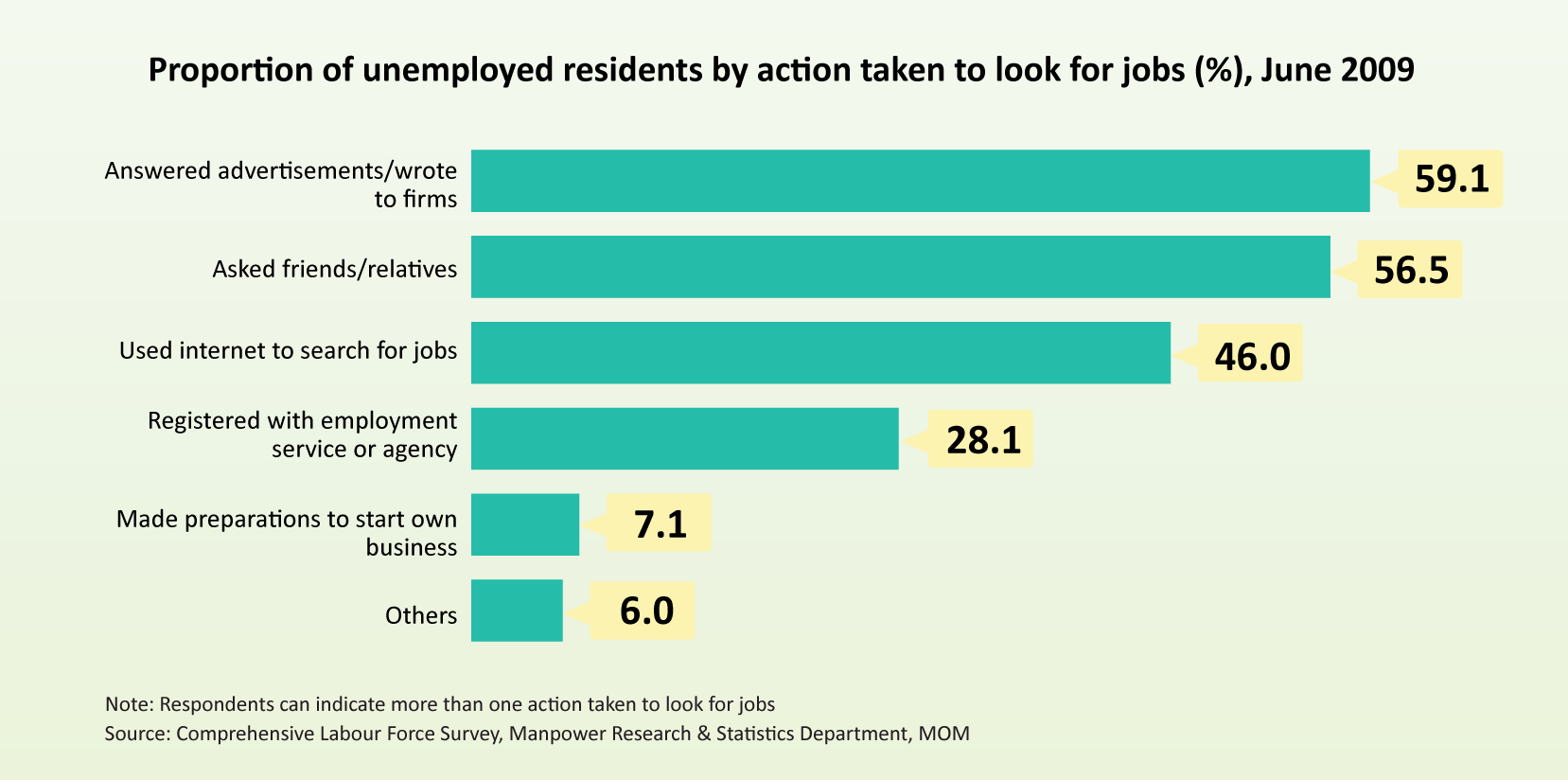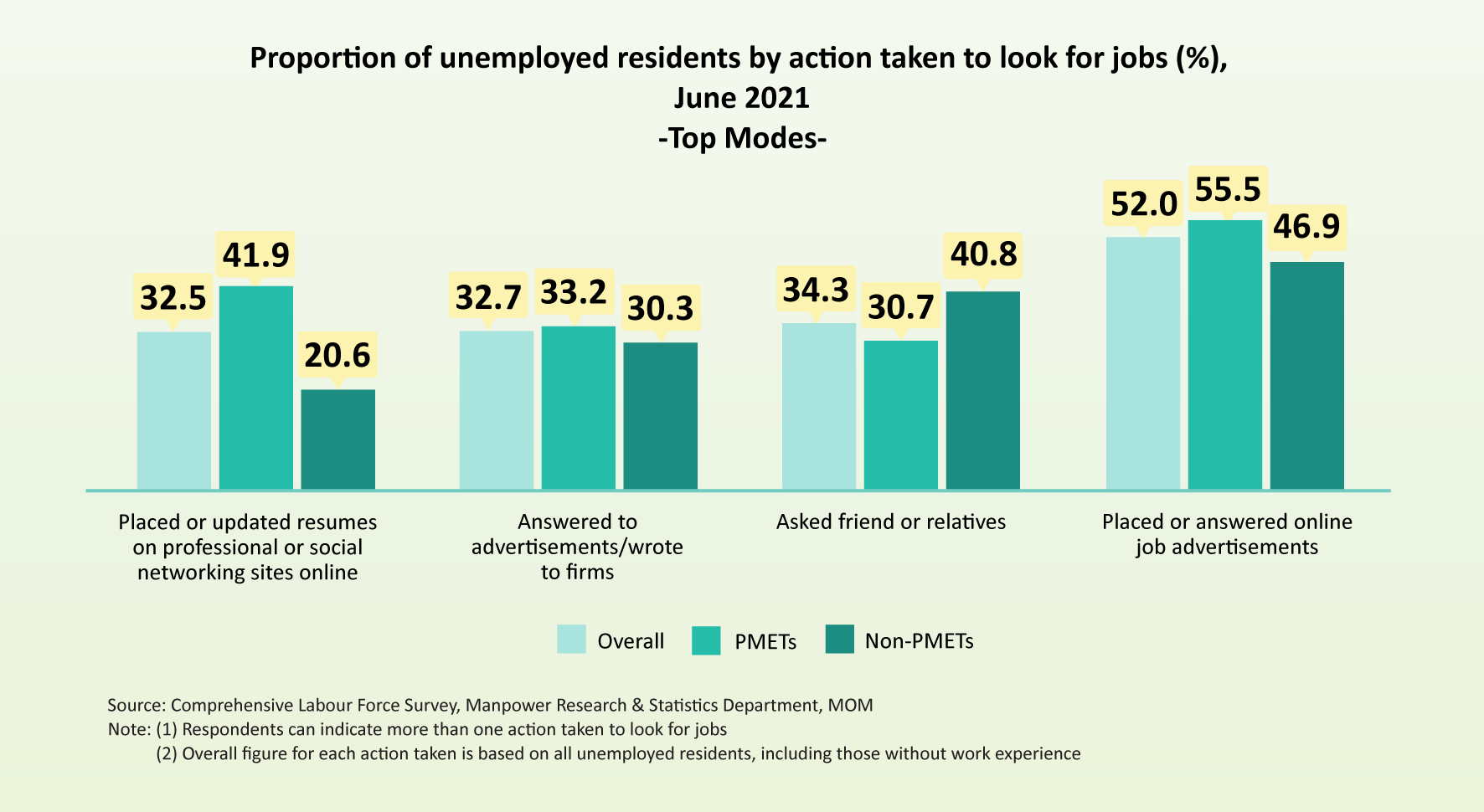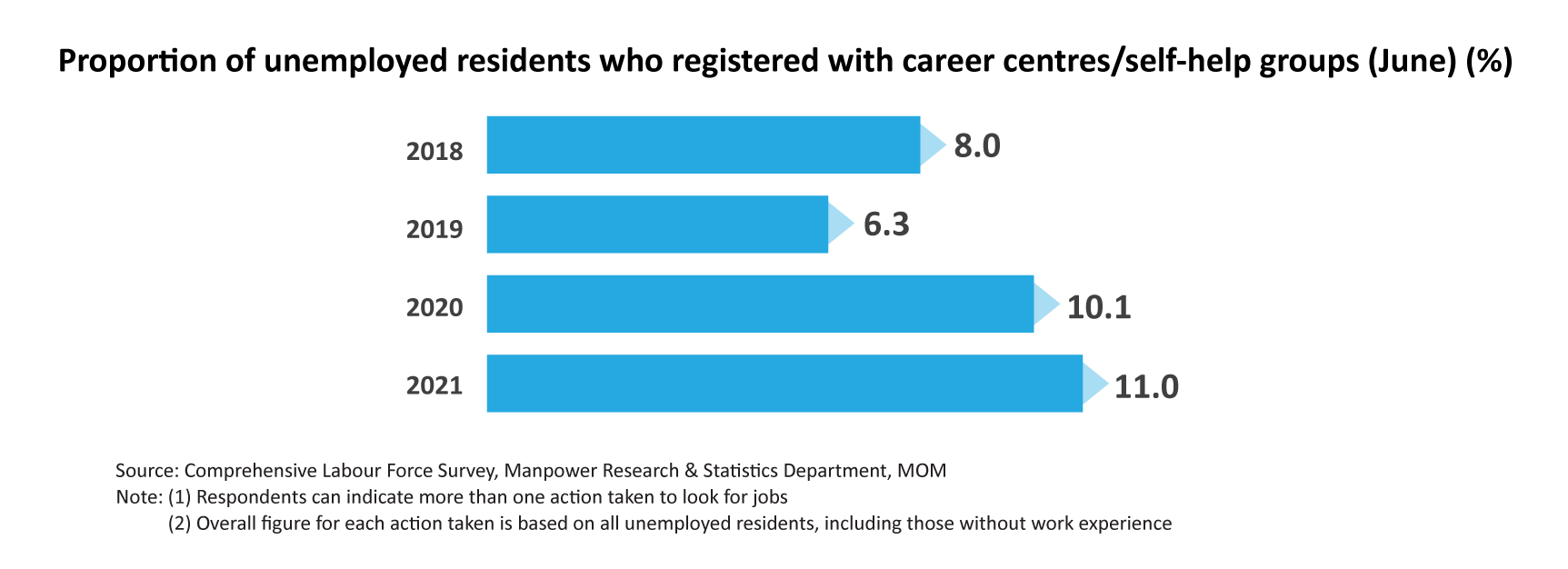The Changing Modes of Job Search
Have we changed in how we searched for jobs?
Remember the days of flipping physical newspapers or responding to job advertisements on flyers to find a job? In the midst of the Global Financial Crisis of 2009, we were answering to advertisements and writing in to firms, mailing our resumes and job applications in physical copies and then waiting patiently for months for a phone call for an interview opportunity. The potential job candidate was the active participant in the job search process, and one’s “online presence” was uncommon. The candidate would be scouring newspapers and job advertisements (59.1%) and eagerly asking friends and relatives (56.5%) for any attractive job openings.

Online job search was gaining traction by 2009, as 46.0% of the unemployed residents made use of the internet to look for jobs. Furthermore, a deeper dive into our data of 2009 showed that the internet was the most common way of job sourcing among unemployed degree (73.0%) and polytechnic diploma holders (71.9%), while the rest found answering to job advertisements and asking for referrals from their acquaintainces to be more effective. This could be due to the relatively higher usage of the internet among the better educated as well as the limited supply of lower-skilled jobs on online job portals.

Keeping up with times
13 years later, the way we search for jobs is vastly different. According to our
Labour Force in Singapore 2021, in the middle of the pandemic of 2021, as many as 41.9% of Professionals, Managers, Executives and Technicians (PMETs) uploaded their resumes online via social networking websites like LinkedIn and Facebook. This reflects the change in modes of job search in the digital era, where developers share their portfolio of work via GitHub and data analysts create their own visualisation dashboard as part of their resumes. Employers have also assumed a more proactive role in sourcing for talent by directly advertising online and sourcing for talent directly online as 52.0% of the candidates now respond to online job advertisements compared to more passive hiring such as going through intermediaries at employment agencies (28.1%) in 2009.
Prior to the pandemic in 2018, non-PMETs found that asking friends and relatives were most effective (48.6%) due to the likelihood of employers requiring immediate hiring from a reliable source. Walk-in interviews were also common (23.4%) as more non-PMET jobs such as those in the
Accommodation and
Food & Beverage Services industries required a larger number of hires on short notice. However, this has changed since the onset of the pandemic, as 46.9% of non-PMETs in 2021 find placement or response to online job advertisements more effective as safe distancing regulations of potential candidates altered their job search modes to online.

Less common modes of job search
While we live in the digital era, we should not forget the traditional forms of job search which can still be effective for different demographics and industries. Asking if your ex-supervisor had a job vacancy to fill was still a method that 8.3% of the unemployed residents found useful in 2021.
Career centres like Workforce Singapore Careers Connect has career counsellors who guided the 11.0% of potential resident employees to find jobs according to their needs in 2021, up from 8.0% in 2018 as they found value in speaking to a trained professional.

The key takeaway in finding the suitable job for oneself is embracing the never-ending change in the way the employees engage with their prospective employers. From updating your resume to one which has an eye-catching project via your personal blog to marketing your most marketable skillset in the form of a video upload, one must embrace these changes to stay relevant in today’s competitive job market. By putting extra effort in your job search process, only then can you capture the attention of your prospective dream employer and stay ahead of the field.
